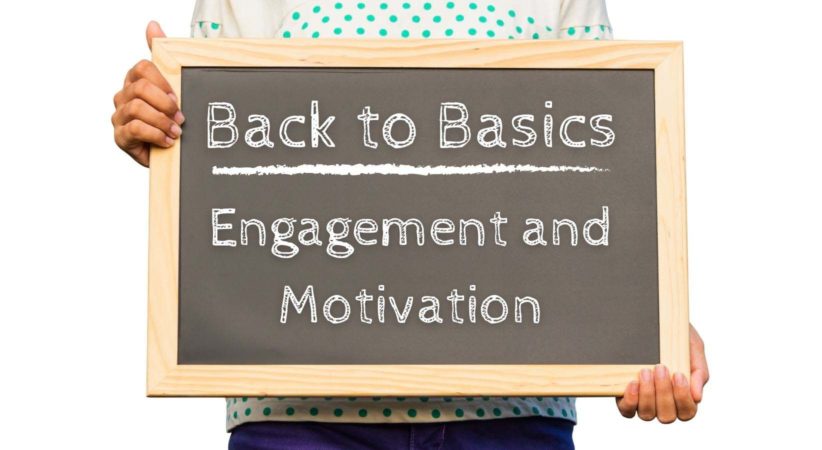
Back to Basics: Engagement and Motivation
Welcome to our Back to Basics series! In this series we explore some of the foundational methods, practices and terminology for teaching reading and writing. This series is for those new to the field of literacy, beginning tutors or those who would just like a refresher. This week we discuss how to help adult learners stayed motivated and engaged.
In a previous post we discussed what makes adult learners unique. Understanding what motivates your learner to pursue literacy learning helps to guide your instruction. Psychological studies have identified a number of factors that contribute to engagement and motivation. This includes self-efficacy, self-control, goal orientations and interest. All of these and other factors interact with each other in unique ways that influence a learner’s motivations. Ultimately, engagement with the material improves persistence, retention and attainment of learning outcomes.
“Learner engagement has a pivotal role in learner satisfaction, persistence, and achievement. It is engagement that affects retention and achievement, two common challenges in adult literacy education.” – Ellen N. Beattie
Tips for Increased Engagement
Based on adult learning theories and positive psychology, here are some tips to help keep your adult learners motivated and engaged with their literacy learning.
- Build self-efficacy. Help learners expect to succeed. The more confident the learner, the more they are engaged with the content. Learners also value discussions structured with guiding questions, the application of course content to realistic scenarios, and the ability to interact with content in more than one format. Keep the learning active and help build their self-efficacy.
- Set appropriate goals. Break the learning goals down into short-term and long-term goals. If their goals are near-term, they are more likely experience success which, in turn, enhances self-efficacy. Help this process by showing the learner their progress week-by-week. Achieving the short-term goals paves the way to achieving the long-term goals.
- Offer feedback in ways that motivates. Offer clear, specific and accurate feedback. The feedback should be appropriate to the learners’ needs and be specific about the area that should be improved. In an online environment, personalized messages and timely feedback helps learners feel less lonely while learning remotely.
- Use assessments appropriately. Present the results of assessments privately. Encourage learners to focus on effort and improvement whenever possible. Motivation is strengthened if students feel they can improve if they work hard at a task. Intrinsic motivation is enhanced when students are rewarded on the basis of their improvement rather than on absolute scores.
There are many more tips and strategies to help your learners stay motivated and engaged with their learning. Read through the resources listed below to discover more.
Resources
- Adult Literacy – Adult Motivation
- How to keep adult literacy learners engaged and motivated
- Improving Adult literacy Instruction: Supporting Learning and Motivation
- Motivational Strategies for Adult Learners: Different Approaches
- The Power of the Positive: Enhancing Online Student Engagement for Adult Literacy Learners
- Shaping and Sustaining Learner Engagement in Individualized Group Instruction Classrooms
Related Blog Posts
LBS and COVID-19
Looking for some resources as your adult literacy work feels the impact of COVID-19? AlphaPlus has created a new LBS and COVID-19 Google site. It’s designed to share information and …
Creating Love for Literacy
Learn about how to help develop a love for reading with adult learners.
Welcome to our Homelands
Designed for newcomers, Welcome to our Homelands is a brief video introduction to Indigenous peoples in Canada and a glimpse of Indigenous history. Produced by ISS of BC, this video …
